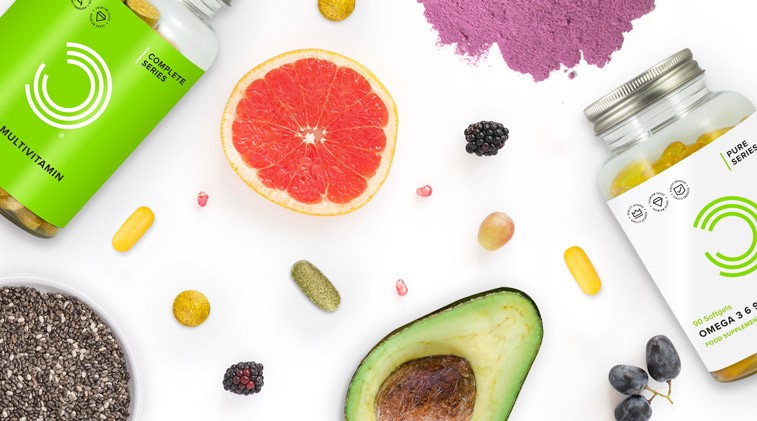I always find it funny when people say things to me like “How do you work in an Immunology Lab and still get sick?!” – as if studying it makes you intrinsically resistant to disease. I wish the immune system was that simple. That would make for a lot more classical “Eureka!” moments in my PhD and a lot less “I-want-to-burn-the-lab-down” moments. I’m kidding – I love my job, as nerdy as it is.
However, there is no denying the fact that knowledge is power and the more you know about what your immune system is, how it works and what affects it, you’re in a far better position to fight off most things life throws at you.
Except failed experiments.
What is Immunity?
Immunity is, in a nutshell, being in a state of protection from danger by your body’s immune system – a complex network of immune cells, proteins and other small molecules which work together to keep you safe and fight off any potentially dangerous invaders (such as a bacterium, virus etc.)
I like to think of the immune system as the body’s own little army; always prepared and able to detect, hunt down and defeat the enemy all while keeping your own cells happy and safe. It does usually by making special proteins known as antibodies which basically “mark” the invaders “dangerous” thereby instructing the body to destroy it. Essentially, our bodies declare war on anything that shouldn’t really be in its territory and most of the time, we win.
Not all of the time, though – this is when we get sick! Obviously, we want to prevent that as much as possible and there are many things you can do to help your body be the one and only victor.
What affects your immune system?
As I’ve said – the immune system is complex and therefore multiple factors can impair its function, but the three main culprits are ones everyone will have dealt with at some point; especially if you live in Ireland or the UK where winter is basically one long walk in a rainy, grass-covered fridge.
Stress
Stress is an energy-demanding process. Anyone who’s ever suffered with anxiety or stress knows how much it can actually take out of you. It leaves you feeling tired, moody and – of course – sick! This is because stress and anxiety are energy demanding processes.
This is energy that could be used to fight an invading virus but instead your stress is sucking the energy tanks dry. Without sufficient energy available to fight, your body just can’t fight as well as it used to. It’s busy being stressed!
Cold temperature
While the cold, rainy weather most of us endure in the winter months does not directly make us ill, it does affect our ability to fight infection, just as stress does.
Your body likes to maintain a body temperature of 37̊ – and it’s very picky about this. When your temperature drops (or rises) it does everything it can to bring it back to 37̊ – another process diverting energy AWAY from fighting infection thus making you a lot more vulnerable.
Malnutrition
Hopefully nobody reading this is malnourished but certainly anyone who has ever dieted has experienced very mild malnutrition through the process of losing weight. How this affects your immunity is fairly straightforward – you don’t have the energy to give to your cells to fight infection. This is easily prevented but unfortunately within the health and fitness industry, being “shredded” year-round is an expectation too many of us risk to achieve.
Supplementation for optimal immune function
You can look after your immune system by trying one or more of our supplements in the immune support category.
Vitamin C
Remember the army of cells I was talking about – the ones that fight off the invading bacteria, viruses and the like? Well these guys rely on Vitamin C to function properly and eat up and dispose of those invading germs.
Yep. They literally eat them up. Gruesome, right?
Probiotics
While not required year-round, a probiotic in winter can help build up a happy family of the “good” bacteria in your intestine, which will not only aid in your digestion, complexion and gut health but also help your body fight off infection from the more “unfriendly” bacteria.
Win, win situation!
Vitamin D3 and Zinc
Zinc isn’t just for you boys (you know what I’m on about…!) it’s also a major component of multiple proteins involved in immunity and cell repair, while Vitamin D3 plays a major role in immunological signalling pathways (important stuff, just trust me on this!). Supplementation with Zinc and Vitamin D3 (ideally in combination with Vitamin C) can help in the prevention of infection and help maintain optimal immune function, so be sure to hit that recommended daily dose of 8mg (females) or 11mg (males) during those winter months.
Keep calm, stay warm and eat peanut butter
As we now know, stress, cold temperatures and malnutrition all negatively impact our immune system. While combating stress is trickier and will vary between individuals, do try and keep a steady head during times of stress such as exam season, holidays and even intense training cycles. While there’s no supplement or “one size fits all” for tackling stress, the best advice I can give is to allow yourself one hour to yourself a day to do something that makes you feel good. I’m a typical kind of girl when it comes to this and usually use my “me time” to dye my hair or do a face mask but this is totally personal. Just ensure it is not a stressor and this INCLUDES training!
Whatever you choose, just make sure you’re not cold. Totally defeating the purpose of the exercise here!
As for malnutrition, this may seem like a no brainer but to ensure your immune system is working as effectively as possible, try to limit dieting to 6-week blocks with at least a 2-week “diet break” in between each dieting phase. Dieting is unavoidable for many and required for some but does indeed take its toll on your immune system. If you are dieting during the winter, give yourself a break every now and then and indulge a little bit more – your body will thank you.
Yes, I did just give you another reason to eat peanut butter. Just what we all needed. You’re welcome.
Take home message
The winter months can take its toll on your body and with Christmas, exam season and champagne-infused parties added to the mix you’re immune system can take a fine beating. However by taking these simple steps to not only improve your immune system’s function but also prevent future infection you’ll be downing that glass of bubbly no problem.
Well, maybe don’t down it. That just creates totally different – and messier – problems.
About the Author
Michelle is a scientist, an athlete and a writer and she’s proud to have faced her demons head on and she’s beating them. In weight lifting she found an outlet to help change her life – and she’s loving it! Follow her journey with BULK POWDERS®.









